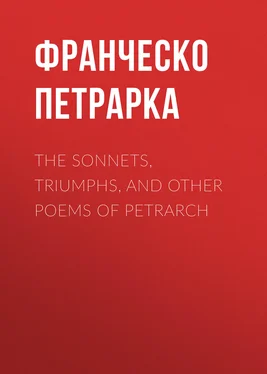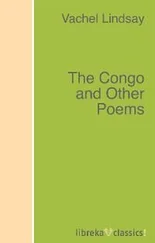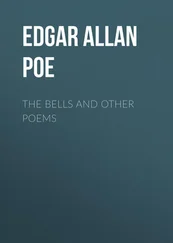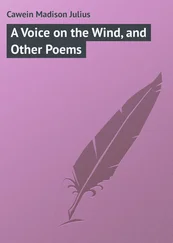Франческо Петрарка - The Sonnets, Triumphs, and Other Poems of Petrarch
Здесь есть возможность читать онлайн «Франческо Петрарка - The Sonnets, Triumphs, and Other Poems of Petrarch» — ознакомительный отрывок электронной книги совершенно бесплатно, а после прочтения отрывка купить полную версию. В некоторых случаях можно слушать аудио, скачать через торрент в формате fb2 и присутствует краткое содержание. Жанр: foreign_poetry, Поэзия, foreign_antique, foreign_prose, на английском языке. Описание произведения, (предисловие) а так же отзывы посетителей доступны на портале библиотеки ЛибКат.
- Название:The Sonnets, Triumphs, and Other Poems of Petrarch
- Автор:
- Жанр:
- Год:неизвестен
- ISBN:нет данных
- Рейтинг книги:5 / 5. Голосов: 1
-
Избранное:Добавить в избранное
- Отзывы:
-
Ваша оценка:
- 100
- 1
- 2
- 3
- 4
- 5
The Sonnets, Triumphs, and Other Poems of Petrarch: краткое содержание, описание и аннотация
Предлагаем к чтению аннотацию, описание, краткое содержание или предисловие (зависит от того, что написал сам автор книги «The Sonnets, Triumphs, and Other Poems of Petrarch»). Если вы не нашли необходимую информацию о книге — напишите в комментариях, мы постараемся отыскать её.
The Sonnets, Triumphs, and Other Poems of Petrarch — читать онлайн ознакомительный отрывок
Ниже представлен текст книги, разбитый по страницам. Система сохранения места последней прочитанной страницы, позволяет с удобством читать онлайн бесплатно книгу «The Sonnets, Triumphs, and Other Poems of Petrarch», без необходимости каждый раз заново искать на чём Вы остановились. Поставьте закладку, и сможете в любой момент перейти на страницу, на которой закончили чтение.
Интервал:
Закладка:
Petrarch took the road to Vicenza, where he arrived at sunset. He hesitated whether he should stop there, or take advantage of the remainder of the day and go farther. But, meeting with some interesting persons whose conversation beguiled him, night came on before he was aware how late it was. Their conversation, in the course of the evening, ran upon Cicero. Many were the eulogies passed on the great old Roman; but Petrarch, after having lauded his divine genius and eloquence, said something about his inconsistency. Every one was astonished at our poet's boldness, but particularly a man, venerable for his age and knowledge, who was an idolater of Cicero. Petrarch argued[Pg lxxxiv] pretty freely against the political character of the ancient orator. The same opinion as to Cicero's weakness seems rather to have gained ground in later ages. At least, it is now agreed that Cicero's political life will not bear throughout an uncharitable investigation, though the political difficulties of his time demand abundant allowance.
Petrarch departed next morning for Verona, where he reckoned on remaining only for a few days; but it was impossible for him to resist the importunities of Azzo Correggio, Guglielmo di Pastrengo, and his other friends. By them he was detained during the remainder of the month. "The requests of a friend," he said, on this occasion, "are always chains upon me."
Petrarch arrived, for the sixth time, at Vaucluse on the 27th of June, 1351. He first announced himself to Philip of Cabassoles, Bishop of Cavaillon, to whom he had already sent, during his journey, some Latin verses, in which he speaks of Vaucluse as the most charming place in the universe. "When a child," he says, "I visited it, and it nourished my youth in its sunny bosom. When grown to manhood, I passed some of the pleasantest years of my life in the shut-up valley. Grown old, I wish to pass in it my last years."
The sight of his romantic hermitage, of the capacious grotto which had listened to his sighs for Laura, of his garden, and of his library, was, undoubtedly, sweet to Petrarch; and, though he had promised Boccaccio to come back to Italy, he had not the fortitude to determine on a sudden return. He writes to one of his Italian friends, "When I left my native country, I promised to return to it in the autumn; but time, place, and circumstances, often oblige us to change our resolutions. As far as I can judge, it will be necessary for me to remain here for two years. My friends in Italy, I trust, will pardon me if I do not keep my promise to them. The inconstancy of the human mind must serve as my excuse. I have now experienced that change of place is the only thing which can long keep from us the ennui that is inseparable from a sedentary life."
At the same time, whilst Vaucluse threw recollections tender, though melancholy, over Petrarch's mind, it does not appear that Avignon had assumed any new charm in his absence: on the contrary, he found it plunged more than ever in luxury, wantonness, and gluttony. Clement VI. had replenished the church, at the request of the French king, with numbers of cardinals, many of whom were so young and licentious, that the most scandalous abominations prevailed amongst them. "At this time," says Matthew Villani, "no regard was paid either to learning or virtue; and a man needed not to blush for anything, if he could cover his head with a red hat. Pietro Ruggiero, one of those exemplary new cardinals, was only eighteen years of age." Petrarch vented his indignation on this occasion in his seventh eclogue, which is a satire upon the Pontiff and his cardinals, the interlocutors being Micione, or Clement himself, and Epi, or the city of Avignon. The poem, if it can be so called, is clouded with allegory, and denaturalized with pastoral conceits; yet it is worth being explored by any one anxious to trace the first fountains of reform among Catholics, as a proof of church abuses having been exposed, two centuries before the Reformation, by a Catholic and a churchman.
At this crisis, the Court of Avignon, which, in fact, had not known very well what to do about the affairs of Rome, were now anxious to inquire what sort of government would be the most advisable, after the fall of Rienzo. Since that event, the Cardinal Legate had re-established the ancient government, having created two senators, the one from the house of Colonna, the other from that of the Orsini. But, very soon, those houses were divided by discord, and the city was plunged into all the evils which it had suffered before the existence of the Tribuneship. "The community at large," says Matthew Villani, "returned to such condition, that strangers and travellers found themselves like sheep among wolves." Clement VI. was weary of seeing the metropolis of Christianity a prey to anarchy. He therefore chose four cardinals, whose united deliberations might appease these troubles, and he imagined that he could establish in Rome a form of government that should be durable. The cardinals requested Petrarch to give his opinion on this important affair. Petrarch wrote to them a most eloquent epistle, full of enthusiastic ideas of the grandeur of Rome. It is not exactly known what effect he produced by his writing on this subject; but on that account we are not to conclude that he wrote in vain.
Petrarch had brought to Avignon his son John, who was still very young. He had obtained for him a canonicate at Verona. Thither he immediately despatched him, with letters to Guglielmo di Pastrengo and Rinaldo di Villa Franca, charging the former of these friends to superintend his son's general character and manners, and the other to cultivate his understanding. Petrarch, in his letter to Rinaldo, gives a description of John, which is neither very flattering to the youth, nor calculated to give us a favourable opinion of his father's mode of managing his education. By his own account, it appears that he had never brought the boy to confide in him. This was a capital fault, for the young are naturally ingenuous; so that the acquisition of their confidence is the very first step towards their docility; and, for maintaining parental authority, there is no need to overawe them. "As far as I can judge of my son," says Petrarch, "he has a tolerable understanding; but I am not certain of this, for I do not sufficiently know him. When he is with me he always keeps silence; whether my presence is irksome and confusing to him, or whether shame for his ignorance closes his lips. I suspect it is the latter,[Pg lxxxvi] for I perceive too clearly his antipathy to letters. I never saw it stronger in any one; he dreads and detests nothing so much as a book; yet he was brought up at Parma, Verona, and Padua. I sometimes direct a few sharp pleasantries at this disposition. 'Take care,' I say, 'lest you should eclipse your neighbour, Virgil.' When I talk in this manner, he looks down and blushes. On this behaviour alone I build my hope. He is modest, and has a docility which renders him susceptible of every impression." This is a melancholy confession, on the part of Petrarch, of his own incompetence to make the most of his son's mind, and a confession the more convincing that it is made unconsciously.
In the summer of 1352, the people of Avignon witnessed the impressive spectacle of the far-famed Tribune Rienzo entering their city, but in a style very different from the pomp of his late processions in Rome. He had now for his attendants only two archers, between whom he walked as a prisoner. It is necessary to say a few words about the circumstances which befell Rienzo after his fall, and which brought him now to the Pope's tribunal at Avignon.
Petrarch says of him at this period, "The Tribune, formerly so powerful and dreaded, but now the most unhappy of men, has been brought hither as a prisoner. I praised and I adored him. I loved his virtue, and I admired his courage. I thought that Rome was about to resume, under him, the empire she formerly held. Ah! had he continued as he began, he would have been praised and admired by the world and by posterity. On entering the city," Petrarch continues, "he inquired if I was there. I knew not whether he hoped for succour from me, or what I could do to serve him. In the process against him they accuse him of nothing criminal. They cannot impute to him having joined with bad men. All that they charge him with is an attempt to give freedom to the republic, and to make Rome the centre of its government. And is this a crime worthy of the wheel or the gibbet? A Roman citizen afflicted to see his country, which is by right the mistress of the world, the slave of the vilest of men!"
Читать дальшеИнтервал:
Закладка:
Похожие книги на «The Sonnets, Triumphs, and Other Poems of Petrarch»
Представляем Вашему вниманию похожие книги на «The Sonnets, Triumphs, and Other Poems of Petrarch» списком для выбора. Мы отобрали схожую по названию и смыслу литературу в надежде предоставить читателям больше вариантов отыскать новые, интересные, ещё непрочитанные произведения.
Обсуждение, отзывы о книге «The Sonnets, Triumphs, and Other Poems of Petrarch» и просто собственные мнения читателей. Оставьте ваши комментарии, напишите, что Вы думаете о произведении, его смысле или главных героях. Укажите что конкретно понравилось, а что нет, и почему Вы так считаете.












